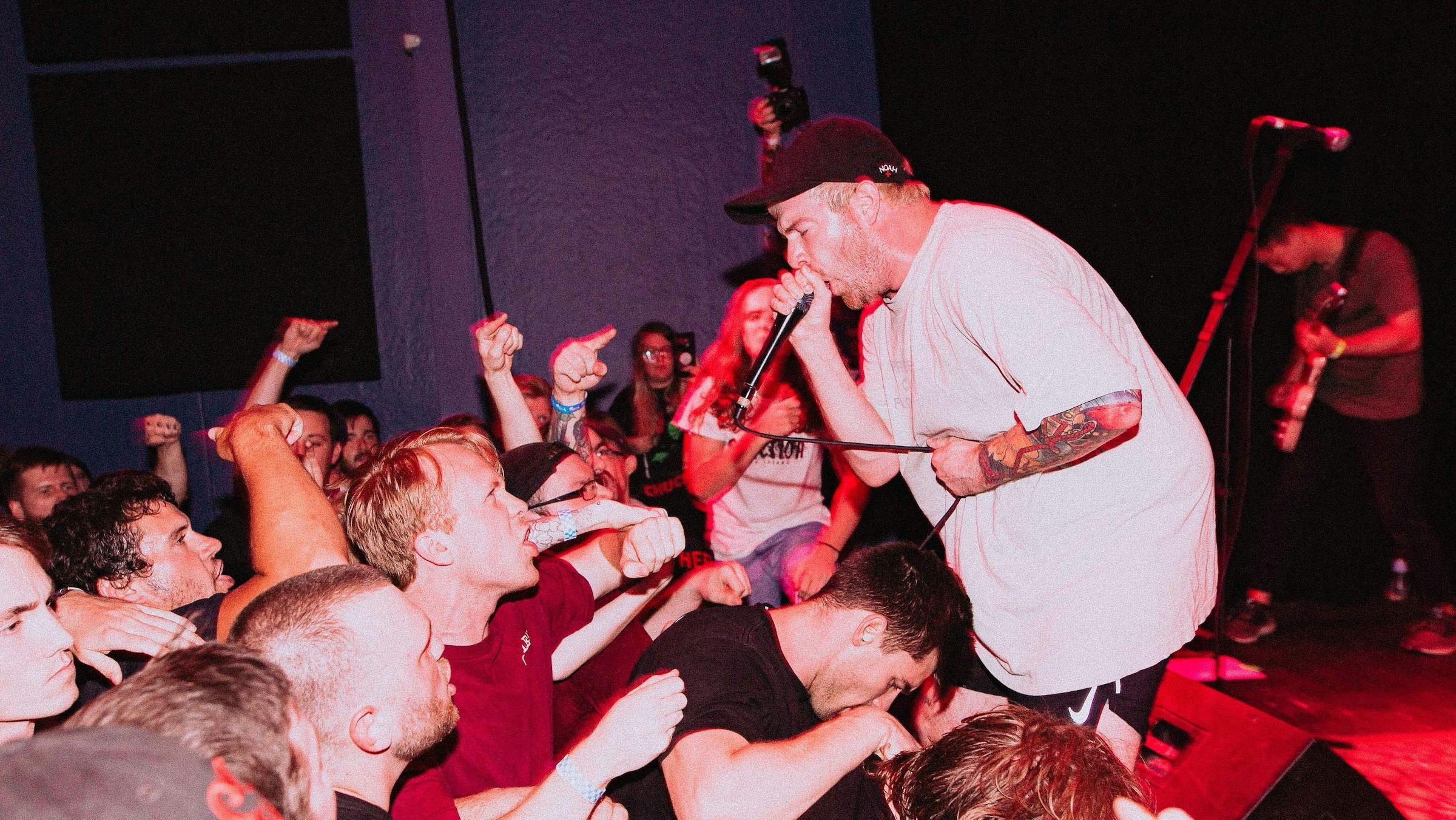There’s this huge divide between your persona on stage and on the Internet, and the lyrics that you write. You seem very easy-going and goofy in person, but you deal with a lot of deep, personal stuff in your songs. How do you strike that balance?
I’m able to have fun and be goofy and try to make the crowd laugh and do my little fuckin’ standup thing in between songs and stuff, even though the lyrics are a lot darker than that. Once every couple of years, I’ll go into the studio and tap into that, and I give it my full, undivided attention for like a month or five weeks or whatever. By doing that, once [the recording process is] over, I got it out. It’s done. I don’t want to feel that way anymore. I know it’s weird, because I’m literally saying the fuckin’ same words every night on stage. I think that the outlet for me comes from writing them down. Because I have a way to get that stuff out, I can go back to being fun and goofy. I can make my jokes.
How I am in person and how I am on the Internet are the same, but lyrically it’s very different. I do like to keep them separate. There’s a time for it, and I’ll actually talk about stuff on stage that’s serious. But when I think about people coming to see us, I just want people to have fun. I don’t want to gather 500 people in a room and bum them out, and have them leaving thinking, ‘I feel like shit,’ because that would suck. I want them to leave being able to connect with the songs. Maybe they were having a bad day, but after that set, they can think, ‘He can be miserable and still have a good time, so maybe I can, too.’ That’s what I’ve always tried to do.
With every record, you guys seem to get bigger and bigger. Does that growth affect your writing or your sound?
I honestly don’t think that in the course of the band, from the beginning to now, much has changed. I think we’ve had more member changes than changes in how we sound. Some bands will change. Their first record will sound nothing like the one that just came out. I don’t think there’s anything wrong with that. That’s cool if that’s what you want to do and if you want to experiment. In terms of Counterparts, we know what Counterparts is. We’re not in the studio thinking maybe we can do an EDM song or something. That’s not a conversation.
We get it. We know that Counterparts is this metalcore, melodic, whatever -- a band that would’ve been on Trustkill back in the day. That’s what we’ve always wanted to be. It’s open-ended enough to where there’s a lot of things we can do with it. If anyone is expecting this gigantic change in sound, just don’t. I’m fully aware of what my band is. I just want to write better songs. I want to keep the same sound, but I want to get better at music.
